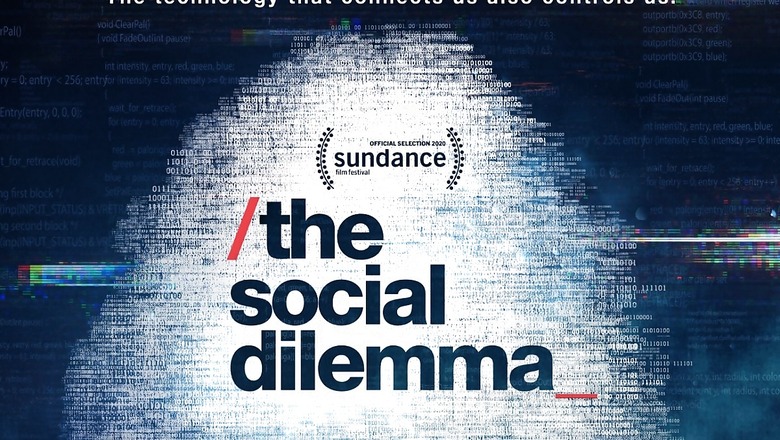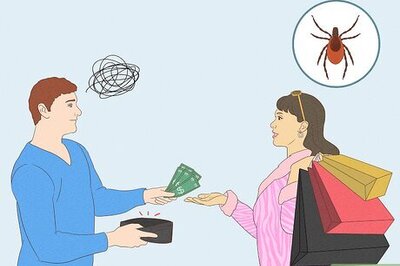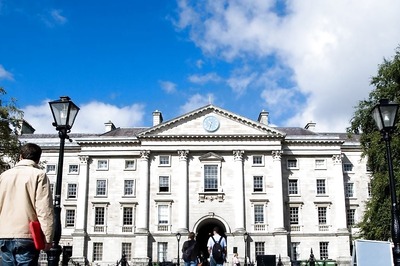
views
By now, practically all of us know that the likes of Google, Facebook and Twitter know a bit too much about us. From keeping a live track of our location, to reading into what we click and how much we shop online, Big Tech has been playing Big Brother’s role with an amicable smile and the promise of democratising social communication – and so far, for the most part, we’ve all accepted its perks happily. Over the past couple of years, however, numerous privacy and policy advocates, coupled with activist bodies and genuinely concerned Silicon Valley engineers, have at least succeeded in raising the voice about why you need to start being concerned about your privacy, and how nothing is really private for you online. That, however, hasn’t really bothered people across generations from saying “eh, it’s okay. My data isn’t sensitive anyway.” The Social Dilemma shows all of that, and we’ve known these things for a while. Why, then, is it suddenly a big deal?
Jeff Orlowski’s documentary-drama about the ill effects of technology today speaks through Silicon Valley engineers such as Tristan Harris, Bailey Richardson, Joe Toscano, Jeff Seibert, Tim Kendall, Jaron Lanier and many others – people who have all played key roles in making the technologies that have formed the addiction trap we are in today, and who have all, at some point, realised the dark sides of this technology moon. What they say is, for the most part, what anyone invested in the global technology ecosystem already know very well. However, what makes it a significant show to watch, and not just for those who are interested in technology, is the personification of reach, engagement, notifications, trends and all those things that we keep tracking each day on social media. It is this personification that makes it relevant, and makes privacy a palatable pill to swallow.
Some of the most significant stories told through The Social Dilemma is how it is the random decisions of a few random individuals that have potentially changed our social fabric forever. Decisions such as how notifications work and how you stay connected with your friends, which at one point seemed like frivolous things that only boys in hoodies cared about, have impacted billions of people – affecting their psyche, eating into insecurities and curiosities. It speaks about how issues regarding the ethical impact of these random engineering decisions may have been raised, but got lost just like you’d lose a needle in a haystack. In ways, it also shows why the very serious issue about privacy has somehow been sidelined as one that only ‘geeks’ or policymakers think about.
It also raises very important questions – if Facebook sends notifications urging you to celebrate a ‘friendversary’, is there really scope to say that there needs to be government-imposed regulations to control such an innocent piece of transaction between the social platform and your smartphone? If the companies refined their product designs in a way that you get to see things that you would really like to, can they really be penalised for it? The counter question that The Social Dilemma also raises is also about whether it really is about penalising the technology behemoths, or instead, actually about holding them accountable and urging them to be ethical and acting in accordance to our society’s moral fabric – a precariously balanced construct that needs to be retained for the sake of humanity.
It is all of these things that The Social Dilemma highlights, and brings to the centerstage. Those of us who have been closely watching the technology space have every right to say that The Social Dilemma could really have been much, much more than just this. One key element that it touches upon, but largely breaks away into the systemic privacy breaches later on, is how the narratives of these tech companies have changed over time. Google, for instance, migrated away from its original ‘don’t be evil’ motto in 2015, as it restructured into Alphabet and assumed the role to ‘do the right thing’. When Facebook started, its entire strength lay in bringing societies together. Today, the socio-political manipulation on its profile has contributed to disrupted elections and rising levels of fake news and misinformation. This is further compounded by a vast lack of understanding of technologies among policymakers and lawmakers, and tech companies being allowed to get away with “we take your wellbeing and privacy very seriously”.
In the most recent landmark antitrust hearing that brought Apple’s Tim Cook, Facebook’s Zuckerberg, Google’s Sundar Pichai and Amazon’s Jeff Bezos – arguably four of the most powerful men on Earth right now – together, one key thing to note was how each company had grounds to justify their actions, by highlighting that while the privacy and addiction concerns may not be wrong, they have also done a lot of good by decentralising unorganised sectors, giving voices to the marginalised, making global connections super easy to afford, and so on. These are facts, but in turn, what was largely overlooked were aspects like how Big Tech’s deep learning algorithms have essentially created echo chambers for you – a factor that can actually stifle your acceptance of opposing opinions, thereby pushing you to become more extreme in thoughts. This can, in turn, have a big impact on how you vote, how you interact with your closest people, and other such key societal factors.
At the end of the day, this is The Social Dilemma’s biggest takeaway. It has taken these issues, and attempted to show to the world that it is something that really should concern you. It shows you why you should not believe that you have nothing to lose by posting your selfies in a Twitter 10-year face challenge, how Instagram measures the exact amount of time that you spend looking at a person’s photograph, and at the end of the day, how each of these metrics turn you into a commodity that is sold to businesses to own. It is your data that is letting the technology giants run away without needing to account for ethics, and as long as you continue to believe that you do not have much to lose, you will continue to be sold. It also highlights that while you financially do not pay anything to these companies directly, you do pay an eventual price, where you end up at a psychiatrist’s consultation due to social anxiety or deep insecurities, or end up force-purchasing expensive apparel against your good judgement, because of virtual social influence.
The Social Dilemma is not a pathbreaking show, but it is an important one nonetheless. Particularly for those outside the technology ecosystem, The Social Dilemma is a show that you really should watch.



















Comments
0 comment